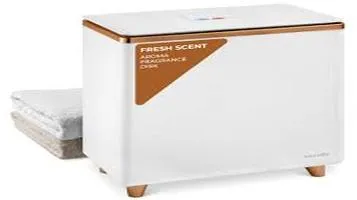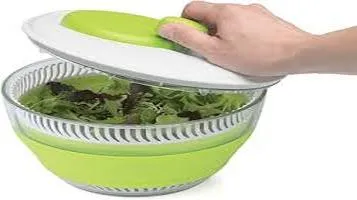Towel Warmers: A Touch of Luxury and Practicality for the Modern Home
Towel warmers are innovative bathroom accessories designed to heat and dry towels, adding a touch of luxury and comfort to daily routines. Typically available as wall-mounted or freestanding units, these devices use either electric or hydronic (water-based) systems to generate heat. Electric towel warmers are often more convenient, requiring only a power outlet, while hydronic models integrate with a home's existing hot water system. Beyond providing warm, cozy towels, they help reduce dampness and mildew, promoting a healthier environment. Towel warmers come in various styles, from sleek modern designs to classic finishes, complementing any bathroom decor. They are energy-efficient, easy to install, and can double as space heaters, making them a practical addition to any home.

In the quest for comfort and luxury within our homes, towel warmers have emerged as a popular and highly desirable feature. These appliances, once considered a luxury reserved for high-end hotels and spas, have become increasingly accessible to the average homeowner. This review will delve into the various aspects of towel warmers, exploring their benefits, types, installation considerations, and overall value, to help you determine if a towel warmer is the right addition to your home.
Benefits of Towel Warmers
One of the most obvious advantages of a towel warmer is the sheer pleasure of wrapping yourself in a warm towel after a shower or bath. This simple indulgence can turn an ordinary bathroom experience into a spa-like retreat. However, the benefits extend beyond just comfort.
1. Hygiene and Freshness: Towel warmers help to keep towels dry, which is crucial in preventing the growth of mold, mildew, and bacteria. In humid environments, towels can remain damp for extended periods, becoming breeding grounds for unwanted microorganisms. A towel warmer eliminates this issue by ensuring towels are consistently dry and fresh.
2. Energy Efficiency: Many modern towel warmers are designed to be energy-efficient. They consume relatively little power compared to other household appliances, and some models come with timers and thermostats to further optimize energy use. By keeping towels dry, they also reduce the frequency of laundry loads, saving water and detergent.
3. Multifunctionality: Beyond warming towels, these devices can also be used to dry delicate clothing items, wet swimwear, and even to warm up your bathroom space, making them a versatile addition to your home.
Types of Towel Warmers
Towel warmers come in various styles and designs, catering to different needs and aesthetic preferences. The two primary categories are electric and hydronic towel warmers.
1. Electric Towel Warmers: These are the most common and easiest to install. They come in plug-in and hardwired versions, with the former being more portable and the latter providing a cleaner look by hiding the wiring. Electric towel warmers use heating elements to warm the towels directly and are available in a wide range of sizes and styles.
2. Hydronic Towel Warmers: These are integrated into a home's central heating system and can be more energy-efficient in the long run. They use hot water to heat the towels and typically require professional installation. While they may have a higher upfront cost, they can be more cost-effective if you already have a hydronic heating system in place.
Installation Considerations
Installing a towel warmer can range from a simple DIY project to a more complex task requiring professional assistance, depending on the type and model you choose.
1. Electric Plug-In Models: These are the easiest to install. All you need is a nearby electrical outlet. They can be wall-mounted or freestanding, offering flexibility in placement.
2. Hardwired Electric Models: These require a bit more effort, as they need to be connected to your home's electrical system. This often involves cutting into walls and running electrical wiring, tasks best left to a licensed electrician.
3. Hydronic Models: Installation of hydronic towel warmers is more involved and generally requires a plumber. They need to be connected to the home's central heating system, which might also involve some modifications to the existing piping infrastructure.
Regardless of the type, placement is key. Ideally, a towel warmer should be installed within easy reach of the shower or bath but far enough from any water sources to ensure safety.
Aesthetic and Design
Towel warmers come in a variety of designs, ranging from classic to contemporary, ensuring that there is a model to suit every bathroom decor. They are available in different finishes, such as chrome, brushed nickel, and matte black, allowing you to match your towel warmer with other fixtures in your bathroom.
Some models feature sleek, minimalist lines, while others have more ornate detailing. The variety extends to the shape and size as well, with options including ladder-style racks, shelf-style warmers, and even cabinet-style units that offer additional storage space.
Value and Investment
The cost of towel warmers can vary widely, from under $100 for basic models to several thousand dollars for high-end, designer units. While the initial investment might seem steep, the long-term benefits in terms of comfort, hygiene, and energy savings can make it worthwhile.
Moreover, a towel warmer can add a touch of luxury to your home, potentially increasing its resale value. Homebuyers often appreciate small, thoughtful upgrades that enhance daily living, and a towel warmer certainly fits that bill.
Conclusion
Towel warmers are more than just a luxury—they are a practical addition to any modern home. They offer numerous benefits, from enhanced comfort and hygiene to energy efficiency and multifunctionality. With various types and designs available, there is a towel warmer to suit every need and aesthetic preference. While the installation may require some investment, the long-term advantages make towel warmers a valuable addition to your home. So, if you're looking to elevate your bathroom experience, a towel warmer might just be the perfect solution.






